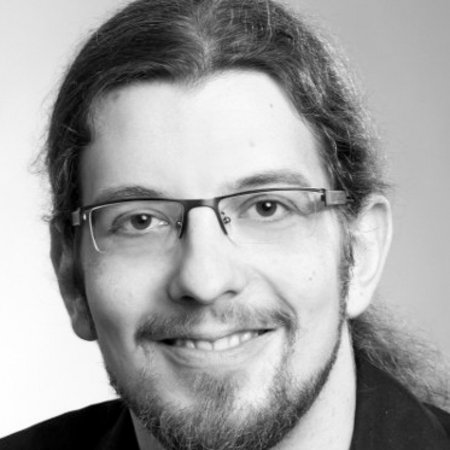Team

Wissenschaftlicher Mitarbeiter
Nils Loose, M. Sc.
- Raum:
- R09 R02 H54
- Telefon:
- +49 201 18-32467
- Fax:
- +49 201 18-34460
- E-Mail:
- nils.loose (at) uni-due.de
Publikationen:
- Loose, Nils; Thommessen, Christian; Mehlich, Jan; Derksen, Christian; Eicker, Stefan: Unified Energy Agents for Combined District Heating and Electrical Network Simulation. In: Sustainability, Jg.12 (2020), Nr. 21, S. 9301. doi:10.3390/su12219301KurzfassungDetailsBIB Download
A sustainable and climate-friendly energy supply needs flexible and efficient distribution systems. Key factors to implement this kind of systems are intelligent coordination (smart grid approaches) and the integration of different energy sectors. This article introduces the unified energy agent as an agent-based approach for a comprehensive modelling and control of energy conversion systems. This approach enables both the simulation and optimization of coupled energy networks, and then in a next step, the development of corresponding smart grid solutions to be applied in the field. Its applicability for the simulation of coupled networks is presented by a real-world use-case of an innovative combined heat and electrical network, which was implemented for the city of Lemgo, Germany. Preliminary results from the project are discussed and an outlook on future work is given.
- Ludwig, Marcel; Mehlich, Jan; Azad, Schaugar; Zdrallek, Markus; Thommessen, Christian; Witte, Nicolas; Loose, Nils; Settertobulte, Ralf; Weber, Uwe: Development Of Cross-Sectoral Active Network Management Systems Using New Engineering Paradigms. In: Proceedings of 2019 IEEE PES 2019. 2019, S. 1-5. doi:10.1109/ISGTEurope.2019.8905516DetailsBIB Download
- Törsleff, Sebastian; Derksen, Christian; Wassermann, Erik; Fay, Alexander; Derksen, Christian; Loose, Nils: An Algorithm for the Temporary Acquisition of Control over Third Party Assets in Active Network Management. In: Conference on Sustainable Energy Supply and Energy Storage Systems . 2017. DetailsBIB Download
- Loose, Nils; Derksen, Christian; Unland, Rainer: Testbed Application of Energy Agents. In: Derksen, Christian; Weber, Christoph (Hrsg.): Smart Energy Research. At the Crossroads of Engineering, Economics, and Computer Science. 3rd and 4th IFIP TC 12 International Conferences, SmartER Europe 2016 and 2017, Essen, Germany, February 16-18, 2016, and February 9, 2017, Revised Selected Papers. 2017, S. 147-160. doi:10.1007/978-3-319-66553-5_11KurzfassungDetailsBIB Download
This work introduces the concept of testbed application of energy agents, which is the intermediate step between testing agents in pure simulation environment and deploying them in real energy distribution systems. In the testbed application case, the energy agent is taken from the simulation environment and deployed to dedicated hardware, where it controls a simulated or real technical system, while still working against a simulated environment. Compared to a pure simulation environment, this application case raises a number of new challenges, mainly resulting from inter-platform agent communication. In this work these challenges are discussed and an implementation handling them is presented and evaluated.
- Loose, Nils; Derksen, Christian; Unland, Rainer: Unified Energy Agents in Simulations, Testbeds and Real Systems. In: Proceedings of the Erasmus Energy Forum 2017. Rotterdam, 2017. DetailsBIB Download
- Wassermann, Erik; Linnenberg, Tobias; Törsleff, Sebastian; Fay, Alexander; Derksen, Christian; Loose, Nils; Unland, Rainer; Ludwig, Marcel; Stötzel, Marcus; Zdrallek, Markus; Heldmaier, Wolfram: Einheitliches und durchgängiges Engineering von Steuerungslösungen für hybride Energiesysteme und -netze mittels Energie-Agenten. In: at - Automatisierungstechnik, Jg.65 (2017), Nr. 1, S. 60-72. DetailsBIB Download
- Törsleff, Sebastian; Derksen, Christian; Fay, Alexander; Heldmaier, Wolfram; Linnenberg, Tobias; Loose, Nils; Ludwig, Marcel; Stötzel, Marcus; Unland, Rainer; Wassermann, Erik; Zdrallek, Markus: Verteilte Automatisierung hybrider Energiesysteme. In: atp edition, Jg.58 (2016), Nr. 11, S. 55-64. DetailsBIB Download
- Loose, Nils; Törsleff, Sebastian; Derksen, Christian; Unland, Rainer; Fay, Alexander: Hardware Integration and Real-Time Control in an Agent-Based Distribution Grid Simulation. In: Demazeau, Davidsson – Advances in Practical Applications (Hrsg.): International Conference on Practical Applications of Agents and Multi-Agent Systems. Springer, 2016, S. 329-332. doi:10.1007/978-3-319-59930-4_31KurzfassungDetailsBIB Download
In recent years, several developments in the energy sector have been imposing major challenges on our energy supply infrastructure. Due to the liberalization of the energy markets that started in the 1990s, longstanding monopolies are being broken up and new actors enter the stage. An increasing awareness regarding the environmental impacts of fossil fuel-based electricity generation put renewable energy sources like wind and solar on a lasting growth path. The volatility inherent to these sources and the shift from centralized to decentralized generation necessitate new approaches as to how energy is marketed, distributed and consumed. The smart grid, i.e. equipping the energy infrastructure with modern information and communication technology, is widely considered essential in addressing the challenges outlined.
- Loose, Nils; Nurdin, Yudha; Ghorbani, Sajad; Derksen, Christian; Unland, Rainer: Evaluation of Aggregated Systems in Smart Grids: An Example Use-Case for the Energy Option Model. In: Bajo, Escalona - Highlights of Practical Applications (Hrsg.): International Conference on Practical Applications of Agents and Multi-Agent Systems. Springer, 2016, S. 369-380. doi:10.1007/978-3-319-39387-2_31KurzfassungDetailsBIB Download
As a result of fast growing share of renewable energy production in the energy market the management of power and its distribution becomes more and more complex. The here presented Energy Option Model (EOM) seems to be a promising solution to handle this newly arisen complexity. This paper will present the EOM and analyze its capabilities in centralized evaluation of aggregated systems. The example use-case will be the charging process of a fleet of electric vehicles. While the results support the potential of the EOM to implement coordination strategies for aggregations of systems, they also show the general limitations of centralized control solutions for larger groups of systems in the context of smart grids.
